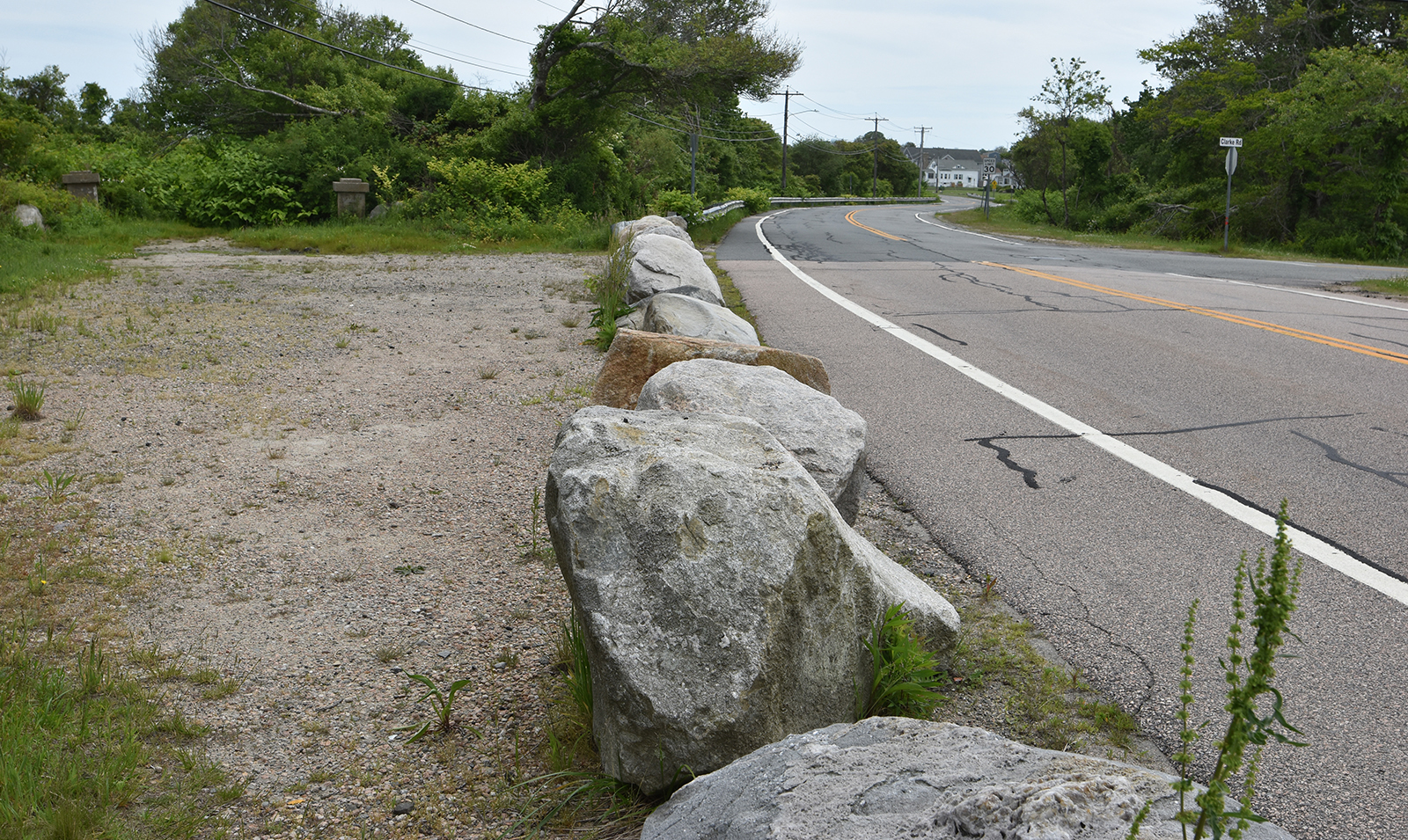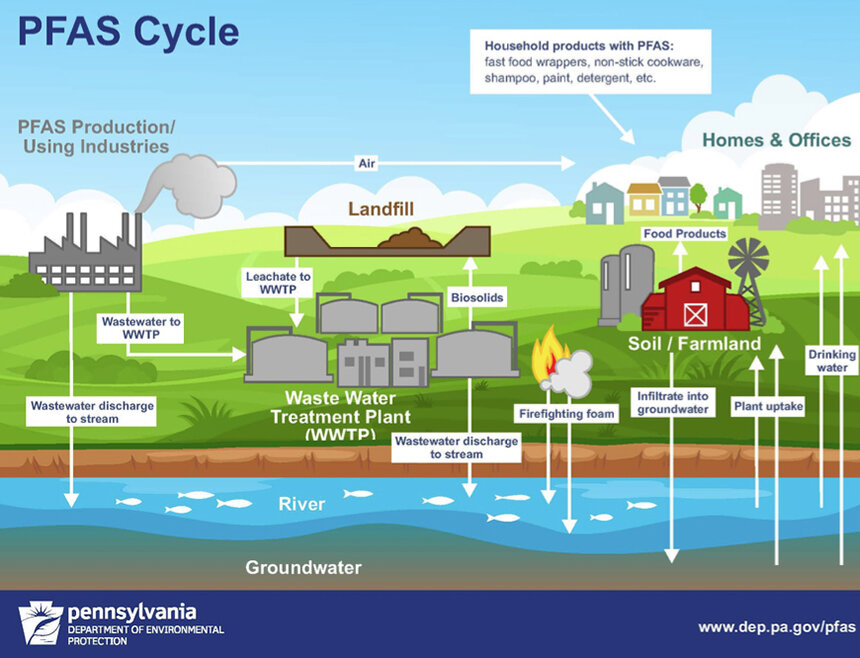Boulders Placed in Shoreline Parking Areas Restrict Access
July 1, 2022
NARRAGANSETT, R.I. — Some popular fishing and coastal access spots have less parking this summer. Two areas managed by the Rhode Island Department of Environmental Management (DEM) have had their parking reduced since the onset of the pandemic: the Camp Cronin Fishing Area near Point Judith Lighthouse and the Black Point Trail on Ocean Road.
Parking has become a flashpoint for shoreline activists, as municipalities often use parking restrictions as a way to bar passage to various shoreline access points. While the Rhode Island Public Transit Authority, particularly during the summer, does have some routes to beaches and nearby areas in Narragansett, a ride on RIPTA can take up to 30 minutes longer than driving from Kennedy Plaza to Point Judith.
DEM confirmed parking reductions at each site, but only claimed responsibility for one. The state agency cited congestion and crowding issues during the height of the pandemic’s first wave in summer 2020 as a reason for the change.
“The parking configurations [at Camp Cronin] were changed during COVID to ensure law enforcement and emergency personnel vehicles could access the fishing areas in case of medical and other emergencies,” DEM spokesperson Jay Wegimont said.
The Camp Cronin Fishing Area, split off in 1985 from a larger parcel of the same name owned by the city of Providence, hosts a lookout point, a rocky promontory popular for fishing, and a small beach. DEM officials placed a number of boulders and no parking signs, significantly reducing the number of spots in the dirt lot from pre-pandemic levels.

Further up the coast from Point Judith is another popular DEM-managed area, Black Point Trail. Just up the road from Scarborough State Beach, the trail is accessed by a main entrance on Ocean Road maintained by DEM.
The property boasts 2.1 miles in trails, gorgeous coastal vistas, and the picturesque seaside ruins of a mansion.
But before the pandemic local residents commonly used a spot further down to pullover or park and access the trails to the shore. This secondary lot, which has a capacity of about five cars if people reasonably park, has been blocked off by a series of boulders. At the back of the dirt lot is a pair of concrete pillars and an overgrown asphalt road that leads toward the shoreline.
“That is not an official entrance to Black Point,” Wegimont said. “We don’t use that entrance at all.”
Satellite photos from Google Maps show the secondary lot being used for parking as late as September 2019.
The lot itself becomes a bit of a multi-jurisdictional mess to sort through. DEM manages the whole parcel of land from street to shore, from the trails to everything in between. But the parking lot is managed by the Rhode Island Department of Transportation (DOT).
The town’s Coastal Access Improvement Council (CAIC) discovered it wasn’t as easy as it thought to reopen the trail. Formed in 2021, the group took the smaller parking lot at Black Point as an initial project.
“We wanted to see what we could do, perhaps even open that up,” said CAIC chair Cinna Zerquera-Martin at a Coastal Resources Management Council-hosted webinar on public shoreline access held last month.
CAIC recommended to the Town Council that it ask the town administrator to ask DEM to remove the boulders, but town officials did not get the response they were expecting.
“We had multiple jurisdictions in control of that area,” Zerquera-Martin said. “But our work did pave the way for a group of private citizens to form the Friends of Black Point to try and weed through DEM, DOT, and the town.”
Friends of Black Point is working on a memorandum of understanding with DEM, according to Zerquera-Martin.
The agency meanwhile said it is working to ensure access at the Black Point trailhead.
“DEM is committed to preserving access to all our fishing areas,” Wegimont said.




These are all coastal lands, so did the DEM get an assent to make modifications to areas listed. Public access is a strong component of CRMC regulations. DEM has one member sitting on the councel as well. If not then there is a violation here and a stop and repair order waiting to be issued.
DEM and CRMC,
Are doing very little to open Access. More and more and more places to park are being blocked.
Quanni breachway is another example. Used to be
Lots of parking. Now on weekends don’t bother going.
Also in Westerly, access is blocked pretty much everywhere.
Supposed to be under review. Well the reviews have been going on for years without any results.
Seems these organizations that are supposed to protect our rights are bought and paid for by the few that own beach property and don’t want the rest of us to enjoy our constitutional rights to the shore.
Coastal access should be something encouraged.by DOT and DEM not discouraged by placing boulders restricting parking and access to the coast. DEM is shirking its duty to protect access to the shore as guaranteed by the Rhode Island Constitution.
This story is incomplete. There’s a lot on Black Rock, and one paragraph on the Camp Cronin spaces. We are led to believe parking at Cronin was reduced in 2019 because of the pandemic. All other restrictions regarding the pandemic have been lifted. Why is this still in place in Camp Cronin? What are the excuses now? Can you please follow up?